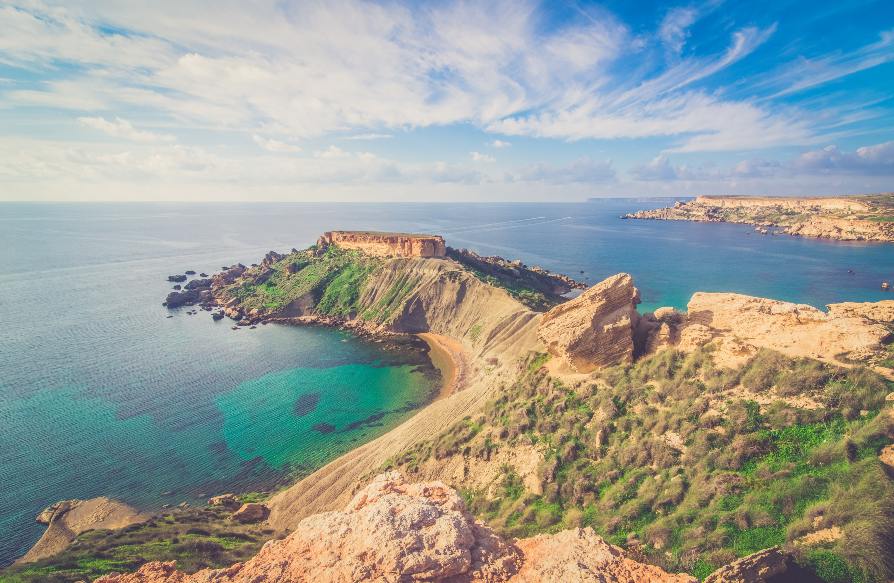Last update: November 8th, 2021.
Malta was one of the countries hit the hardest by border closures in the last 18 months. Their rollout of the EU Digital COVID Certificate (EUDCC) brought back tourists to the island’s beaches.
But shortly after borders opened again, there was a significant increase in daily new cases observed which forced the government to apply some of the most restrictive travel regulations in Europe.
Malta has gone back and forth with its entrance restrictions for travelers and is now easing local restrictions for those in possession of the Maltese COVID certificate.
How to download a COVID vaccine certificate in Malta
Before, citizens could download a single Malta COVID certificate, but now need to re-download all certificates so that the Malta COVID certificate and EUDCC will be generated in a single PDF document.
On July 1st, Malta joined the EU scheme by launching Malta’s vaccine certificate as part of the European-wide EUDCC rollout.
Those who have received both doses of the vaccine (1 in the case of J&J) can automatically generate their vaccine passport for Malta from certifikatvaccin.gov.mt after 14 days.
Malta’s vaccine certificate has been available for months now, and the country has fully vaccinated over 80% of the population by September. But their COVID cases are on the rise.
Only 2 weeks after launching the EUDCC, the country was backtracking on border openings and imposing new restrictions for unvaccinated visitors.
Which COVID vaccine certificates are accepted to travel to Malta?
Malta has enforced strict guidelines since July 14th regarding the validity of international COVID vaccine passports.
The Maltese government divides countries into two categories: red and dark red zones.
People living in or having spent the last two weeks in a red zone are allowed to travel to Malta for tourism if they have a vaccine certificate or are willing to quarantine.
People coming from dark red zones need to apply for a travel authorization (also known as “travel health certificate”).
WHO Emergency List vaccines are allowed for travel to Malta under the condition that the traveler has also received a booster shot with an EMA-approved vaccine. Citizens traveling from countries issuing other vaccines must take this into account before making travel plans.
Malta has a long list of third-country vaccine passports that are accepted and added Israel, Kosovo, Palestine, Bahrain, and Bermuda on October 4th.
The Maltese government is currently accepting the following COVID certificates (subject to change):
- Albania
- Armenia
- Australia
- Bahrain
- Belarus
- Bermuda
- Bosnia and Herzegovina
- Canada
- Cape Verde
- China
- Cuba
- Egypt
- Faroe Islands
- Fiji
- Gabon
- Georgia
- Gibraltar
- India
- Iraq
- Israel
- Japan
- Jordan
- Kosovo
- Kuwait
- Lebanon
- Libya
- Malaysia
- Maldives
- Moldova
- Mongolia
- Morocco
- Myanmar
- Namibia
- New Zealand
- North Macedonia
- Qatar
- Russia
- Rwanda
- Saint Kitts and Nevis
- Saudi Arabia
- Serbia
- Singapore
- South Africa
- South Korea
- United Kingdom
- Timor
- Tunisia
- Turkey
- Ukraine
- United Arab Emirates
- United States of America
- Vietnam
Maltese Health Minister Chris Fearne said: “In recent days, the majority of new cases were related to travel—people who came from abroad or Maltese who went abroad and came back. Most are those unvaccinated tourists.”
This has led the government to only accept certificates proving a full vaccination and not proof of recovery or a negative antigen test result. Negative PCR test results are accepted for entry, but only with a fourteen-day quarantine.
COVID-19 restrictions in Malta
Malta has adjusted the COVID restrictions for bars and restaurants and establishments can choose to limit access to vaccinated patrons only.
Places that choose to take part in the scheme can benefit from various restrictions being lifted, allowing for a greater capacity in each venue. Some benefits include:
- Curfew moved to 3 a.m.
- 1.5 m distance between tables
- Eight patrons to a table instead of 6
- Music up to 80 decibels
- Customers can be served at bars with Perspex
Before establishments can implement vaccination restrictions, they need to apply for a permit to do so. One of the prerequisites to be granted a permit is that all the staff must be vaccinated.
Random checks will be conducted to ensure that only vaccinated people are present in certified venues.
If a restaurant chooses to allow unvaccinated patrons, they must continue to follow the prescribed health protocols.
This system follows similar schemes that are implemented in France and Italy.
Is it safe to travel to Malta now?
Due to the summer tourism season and the Delta variant, a new wave of COVID-19 infections swept across Malta in July. Around 200 new cases were being detected per day.
The infection rate has since fallen to around 19 new cases per day.
The country has recorded 459 deaths in total. Over 80% of Malta’s population has been fully vaccinated as of early October.
Overall, Malta is a relatively safe country when it comes to traveling during the COVID-19 pandemic. However, travelers should always carefully consider all possible precautions before risking further spread of the virus.
